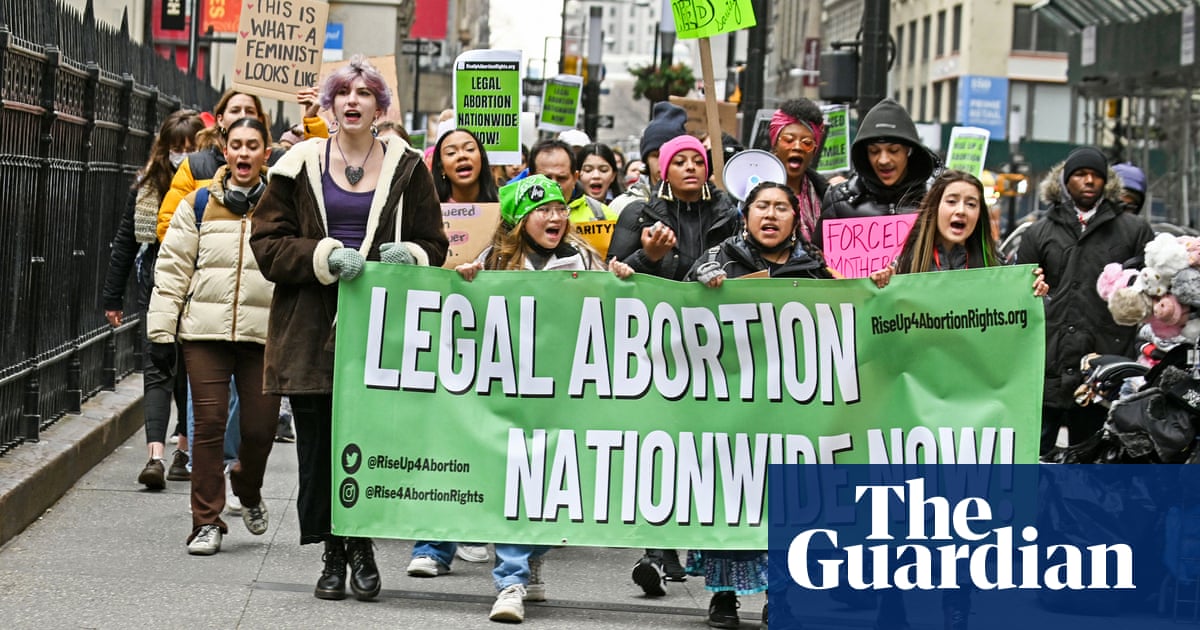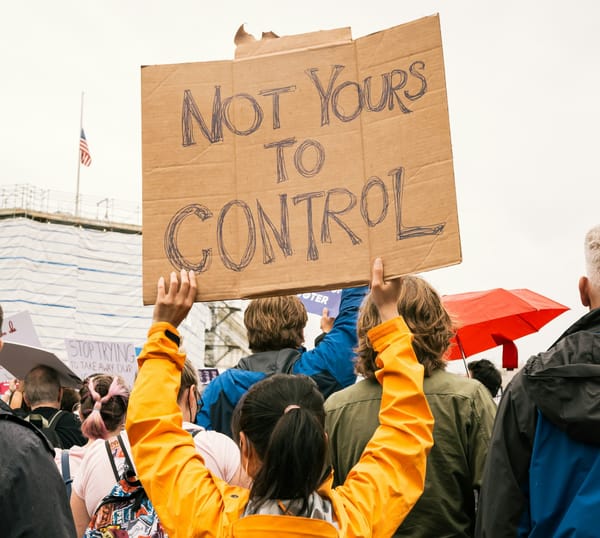6 Abortion Advocates on the Harms of Recreating Roe v. Wade
A new group says it's both unjust and unwise to codify the viability line, which lets states ban abortion after about 24 weeks.

It's January 22, which means it's the anniversary of the Supreme Court handing down the Roe v. Wade decision. The ruling struck down state-level abortion bans nationwide and said the procedure was legal through a certain point in pregnancy; initially the end of the second trimester, then after a 1992 court ruling, though fetal viability, or about 24 weeks.
Not only did Roe never protect people who need later abortions, and it also didn't guarantee people could actually access the procedure early in pregnancy. Thanks to other Supreme Court rulings in the '80s and '90s that gutted Roe, insurance coverage was extremely limited and states could impose unnecessary waiting periods for appointments at a shrinking number of clinics targeted by shutdown laws regulating things like hallway width—and then ban telemedicine so people had to make the costly trip even to get abortion pills.
That's why, last January, for what would have been the 50th anniversary of the ruling, I wrote about how the call to "restore Roe" felt so hollow. As OB/GYN and abortion provider Ghazaleh Moayedi told me: “I don’t want to say that codifying Roe is a bad idea, I just don’t think it’s a good enough idea,” she said, adding, “I’m not willing to settle for a medium solution anymore either, because that’s actually what Roe was. I’m not interested in middle of the road compromises—at all. Maybe that’s what we end up with, but that’s not what I’m starting with.”
She and others spoke about the need to repeal abortion laws and decriminalize all pregnancy outcomes so people aren't arrested for things like miscarriage or stillbirth.

Now, in a huge election year, that abortion philosophy feels quite distant. Groups in multiple states are pursuing ballot measures this fall that would add abortion to their state constitution with the viability line in place. (They are: Arizona, Florida, Missouri, Montana, Nebraska, Nevada.) Michigan and Ohio already codified viability in 2022 and 2023, respectively.
I have new a piece in The Guardian about a group led by the National Institute for Reproductive Health (NIRH) that hopes to make a more expansive vision a reality in the years to come. The coalition, called the Learning and Accountability Project (LAP), believes that abortion rights groups should be using their historic momentum to push for access for all, not leaving the door open for state lawmakers to pass bans later in pregnancy. They note that groups who framed abortion as a decision between patients and their doctors during decades on defense are inviting lawmakers right back into the equation now that Roe is gone.
LAP includes the Society of Family Planning, Medical Students for Choice, Colorado Organization for Latina Opportunity and Reproductive Rights (COLOR), advocacy group Patient Forward; all-trimester abortion providers DuPont Clinic; and abortion provider Dr. Colleen McNicholas.

Some advocates behind measures with viability limits argue the language is necessary to win, while others say proposals don’t need to be perfect—essentially, some abortion access is better than none. But to LAP members, it’s alarming to propose Roe’s compromise for amending state constitutions because that process is, for the most part, permanent—and costs tens of millions of dollars.
The coalition recognizes part of the problem is that ballot measures have been folded into electoral strategy to elect Democrats up and down the ticket, rather than just an effort to restore abortion access. (And to those who say ballot measures are critical for blocking a Republican president who could ban abortion nationwide, evidence from past elections suggests that a decisive number of Republicans voted for pro-choice measures and GOP candidates.)
If, after reading that story, you were like, "fuck yes, more of that please," here is additional abortion stigma-busting wisdom that didn't make it into the final version:
Aurea Bolaños Perea, strategic communications director for COLOR:
"In the movement for reproductive rights, health, and justice, we can think of a couple of names that are always on top of mind. But the success of organizations like COLOR is because we are in the community and on the ground and, even if people don't know us yet, many people have benefited from our success."
"The movement has progressed because people like myself, people like my colleagues, are at decision-making tables, are pushing back, are being more outspoken—not because it is easy for us, but because we're tired.”
Erika Christensen, co-founder of Patient Forward and later abortion patient:
"These fake lines that we're creating based on polling don't matter. What matters is when a person needs help, and their body already has a ticking clock that doesn't care about the state, that doesn't care about the law, that doesn't care about their neighbor’s opinion, they're already under that clock. They don't need more pain, stress, and trauma put on top of that. And I think if anybody thinks about this for two seconds, they get it."
"We've spent so much time, money, resources on entrenching these laws that hurt people. And I think people want something different. they're telling us they want something different and we keep offering them the same thing."
Bonyen Lee-Gilmore, vice-president of communications at the National Institute for Reproductive Health:
"If our goal is to create meaningful access, then we've got to stop talking about abortion ballot measures as a tool to win. The calculation becomes completely different—and should be completely different—if your goal is to actually liberate abortion. We all too often talk about abortion ballots in the context to politics and I think that is a big problem. And I think it influences how money flows and how decisions are made."
"If the polling shows people aren’t ready for it, you don’t rush through a ballot that will enshrine harmful restrictions for another generation. That means that we have to roll up our sleeves and do the work to educate people. That's the hard conversation that we have to have. It means saying 'no' sometimes."
Colleen McNicholas, MD, later abortion provider:
"I think we, as a movement, have a lot of work to do around our beliefs about abortion, and our own stigma around who deserves it and when people deserve it."
"I made a commitment a long time ago that if I were going to share [patient] stories, that I did so with the understanding that I would do every single thing I could possibly do to make sure that, when the opportunity arose, nobody else would experience what they experienced."
"Any solution to restoring abortion access absolutely must be driven by restoring abortion access. The idea that we are putting forth healthcare policy that is restricted at the onset because we want to drive voters for other reasons, quite honestly, is offensive."
Pamela Merritt, executive director of Medical Students for Choice:
"In the aftermath of great defeat, you have an opportunity to do the unimaginable. And if you can’t imagine it, you don't need to be leading it. If you can't wrap your head around winning a ballot measure in Missouri without restrictive language and without advancing stigma... If you can't conceive of that, step aside."
"We keep using the same playbook and we keep losing. And now I have the joy of having a lot of folks who claim to support reproductive justice dust off that old playbook and tell me that this is as good as it gets."
Jenni Villavicencio, MD, interim director of public affairs and advocacy for the Society of Family Planning and all-trimester abortion provider:
"Restrictions like viability, gestational age limits, waiting periods, all of these sorts of laws that make up the anti abortion-legislative network are arbitrary, are very difficult to understand, and really just make it hard for everyday people—your neighbors, your friends and your family—to make essential healthcare decisions."
"Every single one of us who is part of this movement needs to ask these really critical questions about how we can—now that we have, fortunately and unfortunately, been freed from the confines of Roe—how we can walk in our values and walk in the science and the data that shows us that restrictions on abortion are incredibly harmful."
And
- If you feel compelled to make any abortion-related donations today in honor of Roe, you might consider the groups above, all members of the new LAP working group, or an abortion fund in your favorite state.
- Read my related story in Jezebel about how a Planned Parenthood affiliate in Missouri opposed viability limits just last year, but signed on to a proposed viability ballot measure last week.
- Send this newsletter to the people in your life who share abortion memes, I'm near certain they'll love it.






